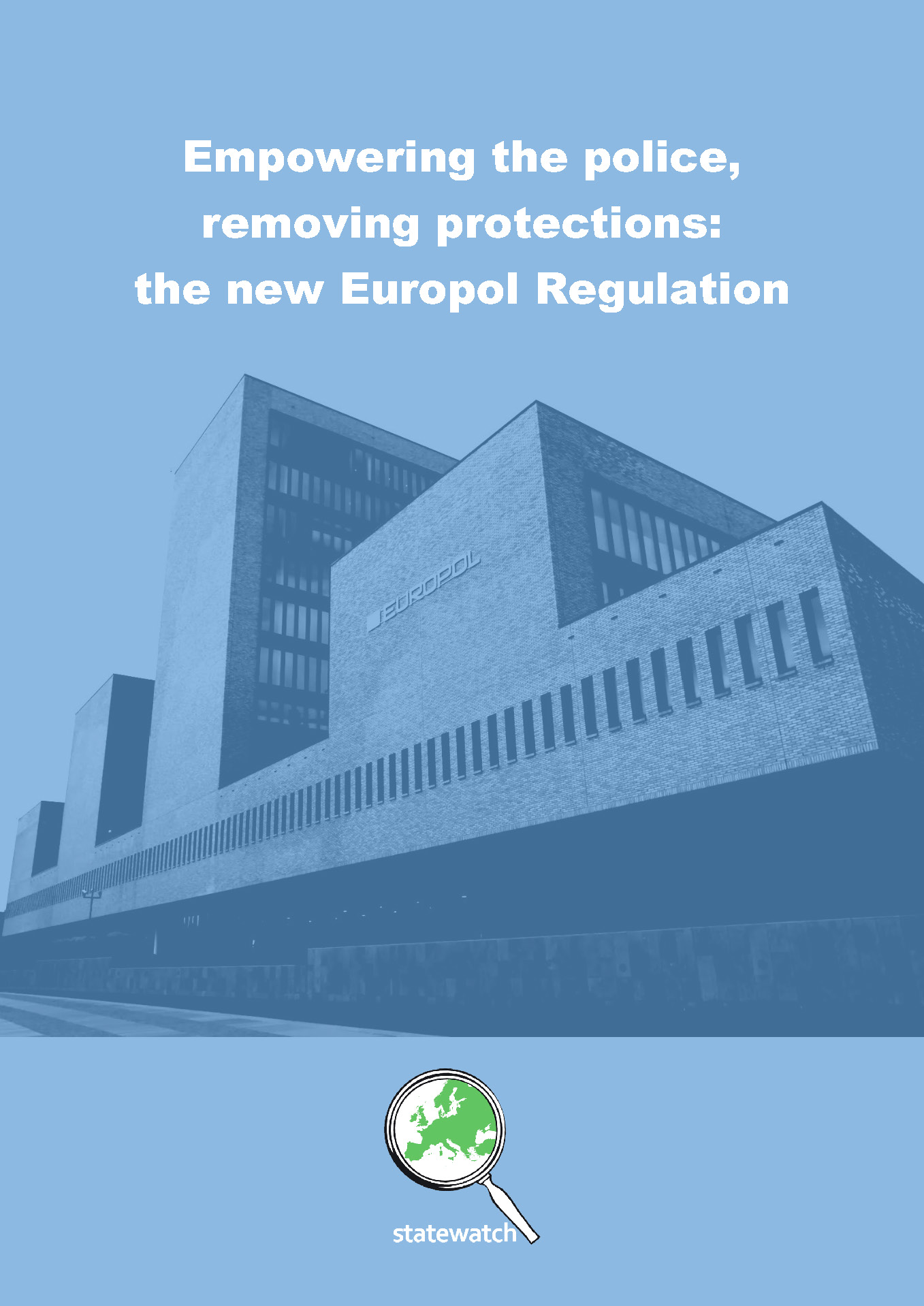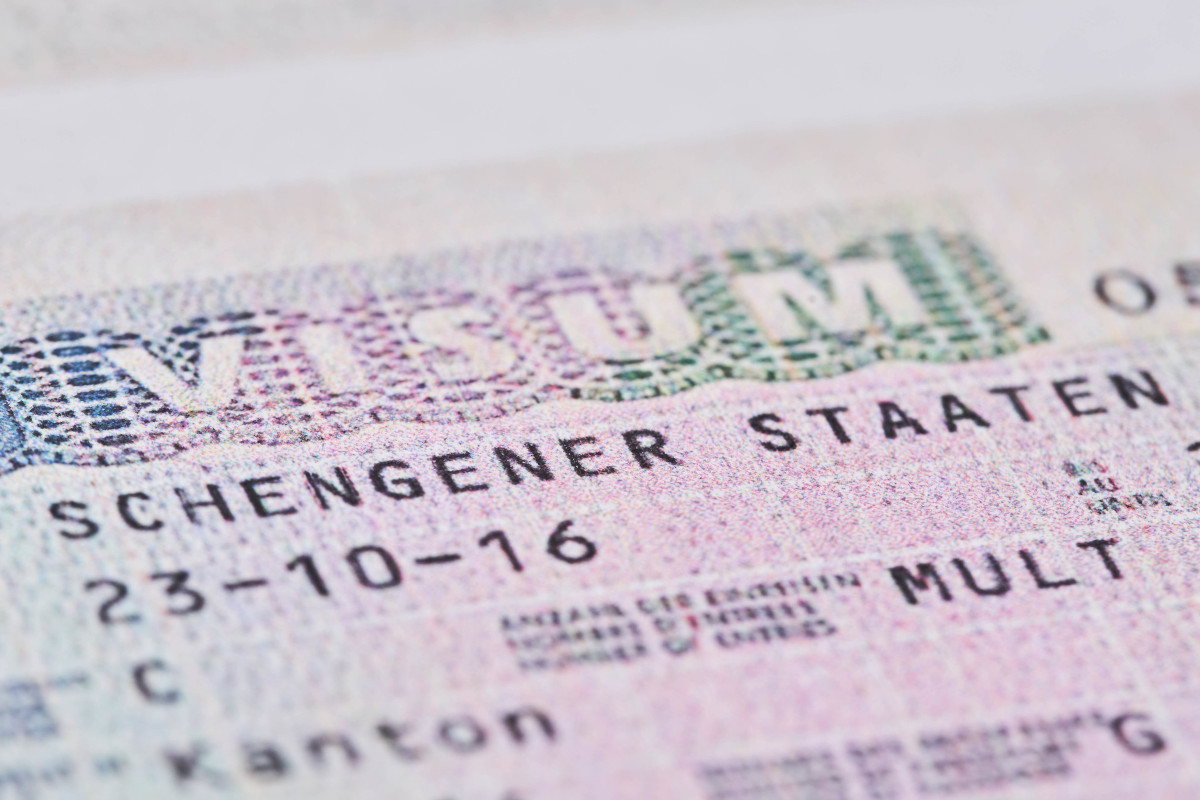New powers for Europol: proposal gets frosty reception from member states
Topic
Country/Region
12 February 2024
At the end of November the Commission proposed expanding Europol’s powers, in the name of fighting migrant smuggling. Member states have started discussing the proposal in the Council. Written comments obtained by Statewatch suggest that the plans have not been well-received in national capitals.
Support our work: become a Friend of Statewatch from as little as £1/€1 per month.

Image: Paul MARSAN, Unsplash
The Commission’s proposal would extend the powers available to Europol not just for investigating cases of migrant smuggling and human trafficking, but would also give the police agency the ability to launch “operational task forces” and use “non-coercive investigative measures” in relation to any crime for which it is competent.
The proposal also suggests new obligations for member states to designate particular police forces or units as “specialised services” for dealing with migrant smuggling, and for national agencies to provide information to Europol’s ever-growing databases.
However, member states are not happy with these plans. In a compilation of comments (pdf) circulated to inform discussion in the Council’s Law Enforcement Working Party, numerous states question the necessity and proportionality of the proposals, criticise the Commission’s refusal to assess its impact, and critique the extra workload the plans would cause, without supplying sufficient funding and staff.
Neither necessary nor proportionate
The German delegation’s comments express “doubts as to whether the proposed amendments to the Europol Regulation are legally necessary” to achieve their stated aim, “especially since the Europol mandate has only recently been strengthened. The necessity and proportionality of the proposals require a very thorough examination.”
The Polish delegation makes a similar point, saying that the authorities have “doubts about the plans to revise the Europol Regulation because, there has not yet been an evaluation of the effectiveness of Europol's activities after strengthening its mandate under the latest amendment to the Regulation,” which came into force in summer 2022.
The Commission’s failure to conduct an impact assessment, contrary to its own “better regulation” guidelines, was raised by multiple states.
The Finnish delegation noted that the lack of an impact assessment means its “experts have been somewhat cautious about how and to what extent The CFR [the EU Charter of Fundamental Rights] has been properly taken into account in all relevant respects.”
While the proposal states that it complies fully with fundamental rights obligations, the Finnish delegation highlights that “it is difficult to assess how. It is now somewhat unclear from the text whether other fundamental rights have been assessed and how exactly the different rights have been weighed, including the necessity and proportionality of restrictions.”
“Non-coercive investigative measures”
Such an assessment is particularly important given the proposal to let Europol officers carry out “non-coercive investigative measures,” which would be a fundamental shift in the way the agency operates, and which the Hungarian authorities describe as “quasi-federal police powers.”
The granting of such powers “is not supported,” say the Hungarian authorities – whose keenness for defending “national sovereignty” has recently led to the establishment of a new authority in the country that “can ask Hungary’s intelligence services for information on individuals and organisations, all without judicial oversight,” and against which the European Commission has launched an infringement procedure for violations of EU law.
Hungary is joined in its condemnation of the plan for new investigative powers by the Czech Republic (which “supports the continuing ban on coercive measures taken by Europol”), while Germany says the provisions “must be analysed in detail,” and Latvia considers the provisions “a rather far-reaching amendment,” to which the authorities will be “paying a particular attention.”
The politics of smuggling
Latvia comments that “such a far-reaching proposal” requires “a proper impact assessment in place; good governance would require even in a situation of high political pressure.” Portugal and Sweden also directly criticise the failure to conduct an impact assessment.
The “high political pressure” commented on by Latvia is a reference to the Commission’s claims that it was unable to carry out an impact assessment for the proposal because it “had little or no choice available, notably due to the urgent operational needs to improve Europol’s support to Member States on countering migrant smuggling.”
A cynic might be tempted to think that the proposal was rushed out so it could be launched at the Commission’s “International Conference on a Global Alliance to Counter Migrant Smuggling,” which featured an opening speech from none other than Ursula von der Leyen, President of the European Commission, and interventions from a host of interior ministers and other politicians (pdf).
Whatever the case, it is evident that not all the member states perceive those needs as urgently as the Commission does, given the responses contained in the document.
A law too far
In the compilation of comments, some member states openly question the political priority given to migrant smuggling, as opposed to other forms of crime, whilst also raising concerns that the proposal would undermine member states’ freedom of manoeuvre to organise national police forces, and to direct EU-level policing priorities.
The Swedish delegation asks why there is a proposal “regulating how Europol and MS [member states] work within this particular crime area, when other, also prioritized, crime areas are not regulated in such detail?”
The Latvian delegation, meanwhile, “wonders why” the Commission has decided to highlight the link between trafficking in human beings and migrant smuggling, but “has decided not to pay a greater attention” to crimes such as “drugs, firearms,” which it says are also connected to migrant smuggling.
The proposal creates a legal basis for the European Migrant Smuggling Centre (EMSC), which is one of many such specialised “centres” at Europol, which the Czech Republic describes as “unequal formal treatment of various centres at Europol,” and “difficult to understand.”
Moreover, the authorities in Prague find it “doubtful if a special legal instrument must formally establish a new specialized centre,” a point echoed by Austria (which argues that regulating the EMSC in law would remove “flexibility”) and Germany (“inclusion of organisational aspects directly in the legislative text should be avoided”).
The proposal is deemed far too intrusive in relation to national prerogatives by many member states, with Austria, the Czech Republic, Germany, Hungary and Latvia – amongst others – raising concerns that obligations to share information, establish dedicated anti-smuggling police units, and make staff available for Europol deployments, are issues that should not be regulated directly by EU law.
The Latvian delegation also raises a number of questions regarding the legal basis proposed for the new rules, which covers “not only Europol” but also police cooperation and Eurojust, the judicial cooperation agency. The Baltic state “wonders how this new/hybrid model fits into Europol structure and governing model,” and is “not entirely convinced that this imbalanced approach can be entirely justified by an argument that migrant smuggling has a high political significance.”
The country has further concerns over measures in the proposal that would let the European Migrant Smuggling Centre determine EU-level policing priorities through the EMPACT (European Multidisciplinary Platform Against Criminal Threats) framework.
The authorities in Riga have “certain reservations” on this point, says the document, as “it is the Council’s prerogative to decide on the serious and organized crime priorities in the framework of four years,” and EMPACT is an “MS-driven instrument; bearing this in mind; LV has conceptual reservations towards the foreseen model.”
Critique galore
These are far from the only problems raised by member states in the document. Criticism is also reserved for the extra workload the proposal will create, without providing sufficient new resources; for the confusion it creates between the roles of Europol and Frontex, with the latter also having some competence for gathering information on “cross-border crime”; and for provisions of the proposal that would allow direct access for Europol officials to national policing databases, amongst other things.
Despite these criticisms, discussion and development of the proposal is ongoing. On 9 February, the Belgian Presidency circulated a document containing its “approach on the building blocks of the proposal,” though it remains, for now, hidden from public view.
Documentation
- Proposal for a Regulation of the European Parliament and of the Council on enhancing police cooperation in relation to the prevention, detection and investigation of migrant smuggling and trafficking in human beings, and on enhancing Europol’s support to preventing and combating such crimes and amending Regulation (EU) 2016/794 - Compilation of replies by delegations (Council doc. 5386/24, LIMITE, 12 January 2024, pdf)
Our work is only possible with your support.
Become a Friend of Statewatch from as little as £1/€1 per month.
Further reading

Empowering the police, removing protections: the new Europol Regulation
This report examines the new powers granted to EU policing agency Europol by legal amendments approved in June 2022. It finds that while the agency's tasks and powers have been hugely-expanded, in particular with regard to acquiring and processing data, independent data protection oversight of the agency has been substantially reduced.

No real safeguards for new Europol data powers, says data protection authority
A new proposal to enhance the powers of Europol and to strengthen its cooperation with Frontex in the name of fighting migrant smuggling falls short of respecting data protection and fundamental rights standards, according to the European Data Protection Supervisor (EDPS).

Expansive new police powers hidden behind EU’s migrant smuggling proposals
At the end of November, the European Commission announced two new laws to fight migrant smuggling. One seeks to make the legal framework more punitive. The other aims “to reinforce Europol’s role in the fight against migrant smuggling and trafficking in human beings,” but would in fact expand Europol’s powers in relation to all crimes for which it has competence, and let the agency conduct “non-coercive investigative measures” during joint operations with national police forces. Its staff are currently prohibited from conducting any kind of investigative measure.
Spotted an error? If you've spotted a problem with this page, just click once to let us know.

